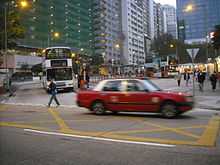Fo Tan
| Fo Tan | |||||||||||
 View of Fo Tan | |||||||||||
| Simplified Chinese | 火炭 | ||||||||||
|---|---|---|---|---|---|---|---|---|---|---|---|
| Traditional Chinese | 火炭 | ||||||||||
| Literal meaning | river beach | ||||||||||
| |||||||||||


Fo Tan (Chinese: 火炭) is an area of Sha Tin District, Hong Kong. It was developed as a light industrial area, but this activity has declined markedly in recent years. There are residential areas to the east, alongside the MTR line, and in the foothills to the west.
History
Fo Tan is located near a river, the Fo Tan Nullah. Beach was revealed when the water receded. It thus became known as "river beach" (Chinese: 河灘). In Hakka, this was pronounced "Fo Tan". It was later mistakenly called "Fire Beach" (Chinese: 火灘) due to similarities in pronunciation. This has further changed into "Fire Charcoal" (Chinese: 火炭) which is in current use, again due to similarities in pronunciation.
Location
To the south is Sha Tin New Town, with the small community of Wo Che in between. To the north is Kau To and the Chinese University of Hong Kong (CUHK). Nearby to the east is Sha Tin Racecourse while across the Shing Mun River is City One Shatin.
Artistic community
Since 2001, as most industrial businesses have closed and moved to mainland China, more than 70 units in the utilitarian industrial blocks have reopened as artists' studios, creating a vibrant if well hidden local arts scene. Every January, a festival, Fotanian - Open Studio Programme, sees many of the studios open to the public. Guided walks lead visitors to these normally private working studios, which encompass a wide range of media and styles.[1]
Housing


Public housing estates
Private housing estates
Private housing estates in Fo Tan include:
- Royal Ascot
- Jubilee Garden
- Scenery Garden
- Shatin 33
- The Grandville
- The Palazzo
Villages
- Fo Tan Village (火炭村)
- Wo Liu Hang
Restaurants
Fo Tan was historically an industrial town. Although industrial buildings have been renovated for commercial use, most restaurants in Fo Tan appear in the form of family-run canteens and fast food take-away located inside these industrial buildings.
The most well-known dining choices can be found in the form of open-air food stalls (dai pai dong). Fo Tan produces one of the best Hong Kong-style chicken congee. Shatin Galleria is another place for light-lunch choices, where chain restaurants such as McDonald's, KFC, and Starbucks are located.
Within the comparatively newly built residential area, restaurants can also be found inside the small shopping centres in Royal Ascot, the Palazzo, and Jubilee Garden.
The nearby Chinese University of Hong Kong campus also hosts a variety of restaurants. Close to its main entrance in Tai Po Road, the Benjamin Frankfurt Centre provides fast food style food court maintained by Café de Coral, Chinese Style dumplings and noodles maintained by the Maxim's Group and a McCafe. A T.G.I. Friday can also be find in the lower campus in Chung Chi College.
Economy


A.S. Watson Group has its head office in the Watson House (屈臣氏中心, J: wat1 san4 si6 zung1 sam1, P: Qūchénshì Zhōngxīn) in Fo Tan.[2][3]
Education
Transportation
- Fo Tan Station on the East Rail Line
- Buses and minibuses
See also
- List of areas of Hong Kong
- Ho Tung Lau
References
- ↑ Fotan art district grows in Hong Kong’s industrial area - Art Radar Asia
- ↑ "Contact Us." A.S. Watson Group. Retrieved on 25 October 2012. "Watson House, 1-5 Wo Liu Hang Road, Fo Tan, Shatin, N.T., Hong Kong"
- ↑ "聯絡我們." A.S. Watson Group. Retrieved on 25 October 2012. "香港新界火炭禾寮坑路1-5 號屈臣氏中心"
| Wikimedia Commons has media related to Fo Tan. |
Coordinates: 22°23′49″N 114°11′45″E / 22.39694°N 114.19593°E
